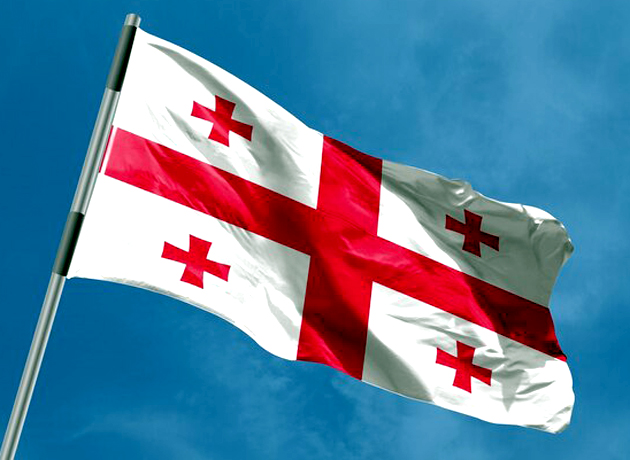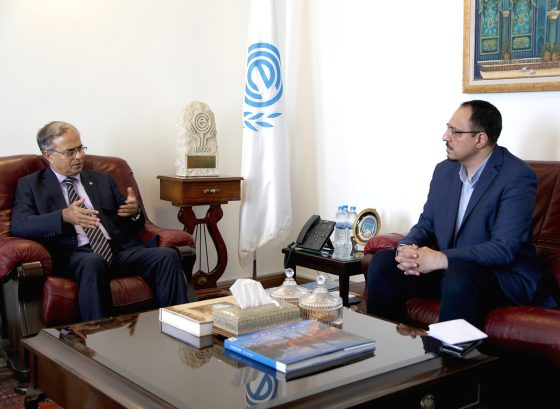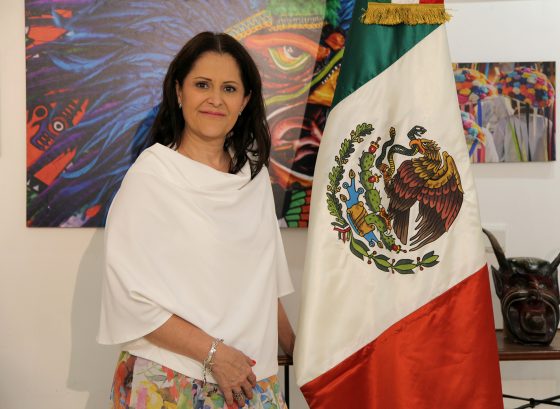14 YEARS SINCE RUSSIA’S MILITARY AGGRESSION AND OCCUPATION OF GEORGIA’S TERRITORIES IN AUGUST 2008

Press Release of the Embassy of the Georgia in Iran:
Illuminating the Past to See the Future
It has been 14 years since the Russian military aggression against Georgia in 2008. This flagrant attack on the fundamental principles and norms of the international law, the UN charter as well as the Helsinki Final Act left its lasting imprint on the European security architecture. It was in fact a watershed event and marked a new phase of the evolution of Russia’s aggressive policy visa-a-visa the democratic world and the rules-based international system. With the use of force and a wide range of tools from its hybrid war arsenal Russia commenced terrorizing the region and the whole world while being held unaccountable. Georgia came first but alas it was not the last. Russia’s intensified aggressive policy leading to emergence of new hotspots in European continent and elsewhere and taking the unprecedented scale in Ukraine, has affected our collective sense of security, and forced us to reconsider our approaches and stand up for preserving our values, our security and the international law.
Following the conventional military aggression in 2008, Russia following it up with unconventional warfare against Georgia expressed through the illegal occupation of Abkhazia and Tskhinvali regions that are now fully militarized while Russia exercises effective control. There are explicit steps towards their factual annexation and the conflict-affected people are forced to endure severe forms of human rights violations and unbearable humanitarian situation on the ground.
The Russian war of aggression against Ukraine might have come as a surprise to the whole world, however, those of us who have been victims of the Russian military aggression in the past have been the least surprised. Russia viewed getting back to “business as usual” following the military aggression against Georgia in 2008 as a de-facto green light to continue ignoring the fundamental norms and principles of international law and plunge the whole continent into further instability. Georgia’s case alone is a vivid example that we cannot afford Russia getting away with the attacks on the sovereignty and territorial integrity of its neighbour countries, illegal deployment of military bases and occupation of the territories of sovereign states, grave violations of human rights in the occupied territories and neglecting its international obligations. Now it has become obvious that the notion of “frozen conflicts” creates a damaging illusion of peace and it is the duty of the civilized world to demonstrate firm stance and take decisive steps to settle the unresolved conflicts in Europe’s Eastern flank and put an end to Russia’s occupation if we want to preserve the security in Europe and the rules-based international order.
14 Years and Counting
During the 14 years of Russian occupation, in contrast with the common, yet naïve belief, it has been neither quiet nor stable in Georgia’s occupied regions. It has been hot with a shaky status-quo — provocative and fragile, taking lives, hostages and has had dramatic negative consequences for all of the conflict-affected people. We have witnessed the steady decay of the security, humanitarian and human rights situation in the occupied regions.
Russia does not feel bound by the EU-mediated 12 August 2008 Ceasefire Agreement and therefore 14 years later Georgia is still the only party in full compliance with it. Against the stipulations of the agreement, Russia still occupies the two Georgian regions and continues extending its effective control. Although the government of Russia adamantly denies it, the 21 January 2021 Judgment of the ECHR legally attests Russia’s occupation and effective control over Abkhazia and Tskhinvali regions of Georgia and holds Russia responsible for the list of grave human rights violations.
Russia’s military aggression against Ukraine only magnifies the challenges stemming from Russian occupation of Georgia’s regions. The two regions with two large Russian illegally deployed military bases and an array of the latest offensive weaponry hold dramatic security implications for Georgia and the whole region. This sense of insecurity is further amplified as a consequence of frequent large-scale military exercises held by Russia in violation of the Ceasefire Agreement in both occupied regions. For example, there have already been around 40 illegal military exercises held in both occupied regions since the beginning of 2022.
As an extension of its provocative policy, Russia has been active with the so-called process of “borderization” and upscaled the installation of the so-called “border” signs, erecting barbed wire fences and digging the so-called anti-fire tranches along the occupation line. These processes have detrimental impact on the situation on the ground and put tremendous pressure on the conflict-affected population.
On top of the security implications of these processes, the humanitarian and human rights dimension of the Russian occupation is particularly alarming. The daily mounting pressure on the conflict-affected population and the abuse of their fundamental rights and freedoms reaches new lows each year. On top of that, the livelihood of the people in the conflict-affected area is seriously challenged by the denial to freedom of movement which aims to fully isolate these regions from the rest of Georgia and impose obstacles for the efforts of Georgia, with the support of its partners, directed towards reconciliation and confidence-building. The extended periods of closure of the occupation line pushes the regions to the verge of humanitarian crisis and it has already cost lives of a dozen of individuals who could not receive emergency medical assistance on the Georgian government-controlled territories. According to assessment in the Consolidated Report of the SG of the Council of Europe from April 4, 2022: “The human rights and humanitarian situation of the conflict-affected communities remained under strain, notably due to persisting and/or newly imposed restrictions on freedom of movement, documentation issues, and obstacles to access to basic services”.
Every year we witness more intense forms of ethnic discrimination as Georgians in the region are increasingly targeted by the Russian occupation regimes based on their ethnicity. Moreover, education in native language is almost completely eradicated from the schools and kindergartens of the occupied regions and there is systemic policy of removing Georgian language altogether along with all the other Georgian traces from the region. This also concerns deliberate attacks on Georgian cultural heritage in both occupation regions as they are being subjected to stylistic falsification aimed at obliterating all cultural association with Georgian historical and cultural identity.
Among other areas, the one that highlights the misperception concerning the “stable” nature of the conflict the most, is violation of the right to life. The ongoing Russian occupation is taking lives, injures even more and many more and likely to fall prey to it. As the practice of illegal detentions and kidnappings continues, people are being tortured, fired at, killed and no single soul is held accountable for these horrendous atrocities. The cases of torture and killing of Archil Tatunashvili, Giga Otkhozoria, David Basharuli as well as the death of Irakli Kvaratskhelia in the Russian military bases in the occupied Abkhazia region are the highlights of the true face of the Russian occupation. Others, like Zaza Gakheladze were more “fortunate” and got away with only being wounded after he was shot during his illegal detention. As the United Nations High Commissioner for Human Rights puts it in the latest report on cooperation with Georgia: “Such a lack of accountability contributes to a climate of impunity, which could lead to further tensions and insecurity”.
Meanwhile, Russia continues denying the hundreds of thousands of Georgian IDPs and refugees the rights to safe and dignified return to their homes. The current scale of ethnic discrimination in both regions is likely to further increase the number of IDPs and refugees and that seems to be the goal of the Russian strategy – to remove all ethnic Georgians along with all Georgian traces from the regions while it continues the policy of complete “Russification” of Abkhazia and Tskhinvali regions.
Since 2008 Russia has been accelerating the steps towards de-facto annexation of the two Georgian regions and lately this policy became more pronounced yet. Based on the so-called integration treaties between Russia and its occupation regimes, the two regions are being dragged into Russia’s military, political, economic, social and judicial spheres, blurring the lines between them and the Russian autonomous regions in the Northern Caucasus. One of the latest iterations of the policy has been the adoption of so-called programme for creation of common social and economic space between the Russian Federation and the occupied Abkhazia region, which is to remove the last few impediments to Russia’s full domination of the region. The Russian occupation regime in Tskhinvali region has been vocal calling for joining the Russian Federation, however lately they have been undertaking specific steps in this directions, namely launching discussions on the arrangement of a referendum. These dangerous processes do not go unnoticed. Among other responses, the Resolution 2438 (2022) of the Parliamentary Assembly of the Council of Europe “deplores and condemns the illegal occupation and creeping annexation by the Russian Federation of the Georgian Regions of Abkhazia and the Tskhinvali region/South Ossetia that causes a dire security, humanitarian and human rights situation on the ground with increased illegal militarisation and restrictions to freedom of movement.”
The situation on the ground is becoming even more concerning as the international security and human rights monitoring bodies are denied access to the occupied regions. Even EUMM – the only international mission on the ground – can only exercise its mandate on the Georgian government-controlled territories. In this light, it is outrageous that there has been an incident of detention of the EUMM personnel by the representatives of the Russian occupation regime in Tskhinvali region.
Moreover, alongside with its provocative and illegal actions on the ground, the Russian Federation obstructs the peace efforts of Georgia and its international partners. For the past 14 years the Geneva International Discussions has been a regular target of the Russian Federation, ultimately rendering any chance of success stillborn. The ever-present inclination of the Russian side to disrupt meaningful discussions and politicize the humanitarian and human rights issues has led to the reality where the core agenda items like the non-use of force, international security arrangements, return of IDPs and refugees as well as the pressing needs of the conflict-affected people remain unaddressed. The same applies to the IPRM meetings and while the inherent instability on the ground remains, Gali IPRM continues being suspended. The importance of the Geneva International Discussions cannot be overestimated — it is the only negotiation format between Georgia and Russia with the involvement of international actors like the EU, OSCE, UN and the US, tasked with addressing the implementation of the 12 August 2008 Ceasefire Agreement by the Russian Federation. Russian military invasion in Ukraine has clearly highlighted the necessity of compelling the Russian Federation to implement its international obligations.
Georgia has been pursuing peaceful conflict resolution policy and has been determined to advance its peace efforts in two major directions — de-occupation of Georgia’s regions on the one hand and fostering engagement and confidence-building between the communities divided with the occupation line on the other hand. We continue developing strategies to better equip ourselves with the tools to address the needs of the conflict-affected people on the both sides of the occupation line. The Covid-19 pandemic proved to be a particularly demanding period, but the government of Georgia made sure to support the people in the occupied regions.
The Way Ahead
Today, when it is easy to observe how the current instability can spill-over into wider security implications and the blow to the European security might become fatal, there is heightened necessity to develop a unified approach to tackle the effect of Russia’s favoured aggressive method of foreign policy conduct. The context has not changed but only upscaled thus the cases of Georgia, Moldova and Ukraine cannot be detached from one another. It is part of the wider objective of Kremlin to gain the spheres of influence with every possible means and it has to do with the goal of undermining the whole of European security architecture along with the democratic principles that we cherish. It is a clear attempt to drag us back into the style of international relations that befits 19th century. If we allow Russia to tear the legal fabric of the international system then there will be nothing to uphold with the world submerging in chaos and decay.




